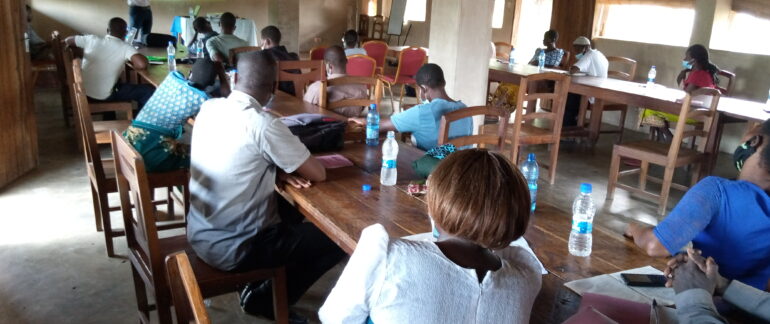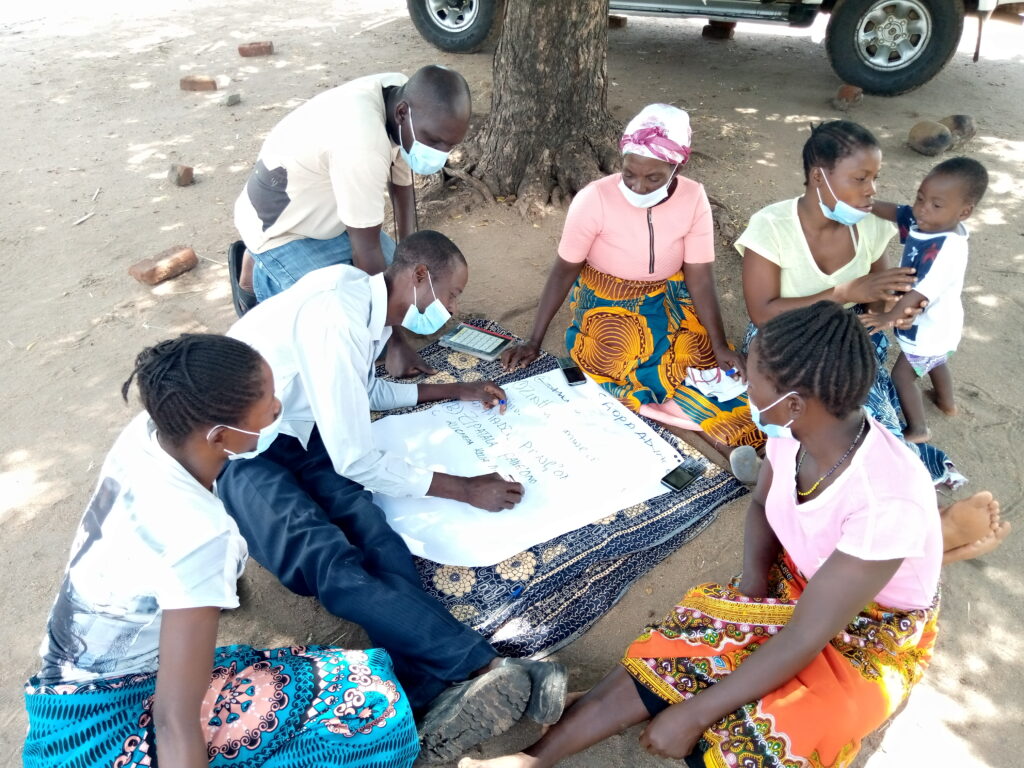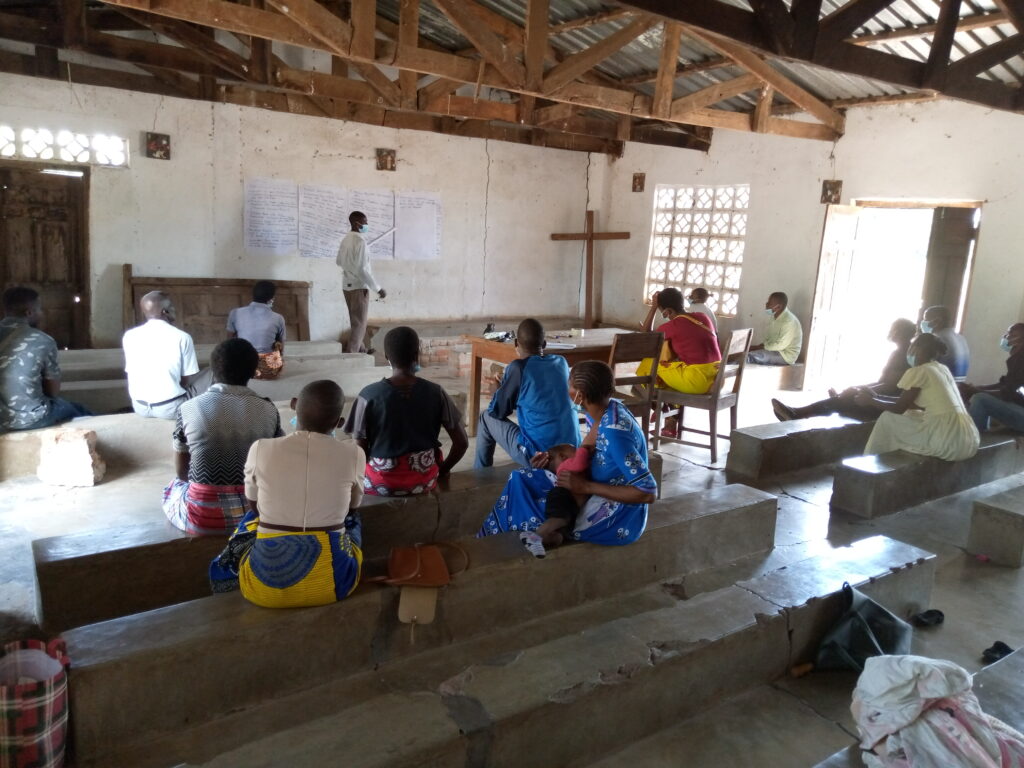CCJP and CFSC in Community Capacity Building for Social Accountability

CCJP and CFSC in Community Capacity Building for Social Accountability
Corruption and political capture of development remain key detriments along Malawi’s path to social economic stardom. Nowadays, it is an exasperating normalcy for elected leaders to exercise explicit control over public resources and the local government development process. Certainly, plunder of public funds rife, and local development envelops are often abused. These, coupled with weak citizenry participation and inactive local government structures, plunges the quest for social transparency and accountability into a headwind. No wonder, the country’s social economic development process, in almost every indicative aspect, has always moved at a snail’s pace.

With decentralization at the core of local development, grassroots are supposed to be both prime movers and beneficiaries of developmental projects. Members of Parliament and councilors, just to mention a few, are expected to be adhering to the demands of local development structures, such as Area Development Committees (ADC) and Village Development Committees (VDC). But in most cases, ours is a situation so deviated from this expectation.

But recent interventions in capacity building of both existing and parallel local government structures at grassroots level have shown some potentials to totally obliterate corruption and promote good governance. Indeed, parallel structures mostly comprised of active community citizens are becoming more highly adept at providing checks and balances in local development projects. Established by well-wishing stakeholders, CSO in particular, these structures have given a success story on saving public resources and championing the local development agenda. It is hence not surprising that more CSOs are investing much on strengthening the capacity of such local structures.
It is against this background that the Catholic Commission for Justice and Peace (CCJP) and Centre for Social Concern (CFSC) have been separately aiding the capacity of their own established structures in Chikwawa district.
Firstly, CCJP has been working with Citizen Journalists (CJs) and Community Action Groups (CAGs) in the area of Traditional Authority Ndakwera and Mulilima in a Project termed ‘Enhancing Citizen Participation in reducing political corruption and promoting health service social accountability’. These structures have been continuously trained on number of areas including Public expenditure tracking, Local level Planning, management of local government Envelopes (LDF, CDF, etc), and decentralization Process. This has been done with support from Open Society Initiative for Southern Africa (OSISA)
So far the role of the CJs and CAGs in promoting social accountability has been remarkable. CJs and CAGs in the area of TA Mulilima have on a number of occasions summoned their MP and councilors to account for the usage of CDF in their area. These structures have also pushed for a number of development projects such as timber-deck bridges and a local clinic. In the same vein they have minimized political hands on the local development envelops. To that effect, they have managed to bring sanity in the management of CDF.
There are equally tremendous success stories fromTA Ndakwera. The CJs and CAGs have been putting their elected leaders to a straight scrutiny. They coerced the leaders to transparently use CDF funds. Through their efforts, a health center has been built in the area. They also engaged relevant stakeholders over mobile network hitches in the area. This led Airtel Malawi to erect a tower in the area. Thanks to the CJs and CAGs, people in the area can now communicate with ease.
On the other hand, Center for Social Concern (CFSC) has been working with Community based Advocacy groups (CBAGs) in the area of TA Ndakwera and Ngabu. This is coming through a project termed ‘enhancing research and evidence based advocacy on livelihood issues established” with funding from Trocaire. In its project implementation, CFSC established a grouping of over forty community influencers that were similarly trained. Their trainings covered areas like Community based Advocacy, social accountability monitoring, human rights, and gender mainstreaming and resource mobilization, just to mention.
It is through these trainings and continued engagements that CFSC has made strides in increasing the capacity of CBAGs in advocacy and promoting resource rights. The CBAGs of TA Ngabu for example lobbied for the construction of a community under-five clinic which will soon be launched. They are also lobbying for rehabilitation of roads and drilling of boreholes.
So far, the efforts of CBAGs in monitoring social accountability and holding duty bearers to account have been encouraging. This has been achieved through a number of interface meetings with elected leaders.

Equally significant are the efforts made by CBAGs from TA Ndakwera. They for instance addressed the rampant theft of drugs at a local clinic, through tireless engagement with district officials and Police. In short, they have been continuously engaging duty bearers in a way that has strengthened the much needed public dialogue on general livelihood between right holders and duty bearers.
By design, the CBAGs also Collect and disseminate evidence-based findings on livelihood issues such as food security, climate change impact from selected communities.
With the local government development process facing deep-seated huddles, the utilization of active citizens in local development is a better option in any attempts to change the situation. The structures established by CCJP and CFSC have shown a greater potential to achieve a total overhaul of a counterproductive system. Clearly, there is a stronger need for more capacity building interventions for these structures. Furthermore, there is a strongerneed for funds for these two organizations to further establish these structures in other areas of the district.
